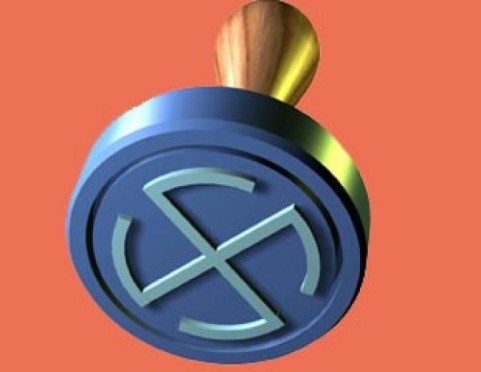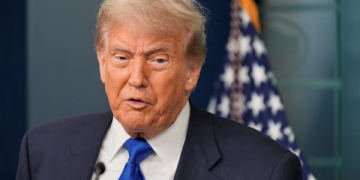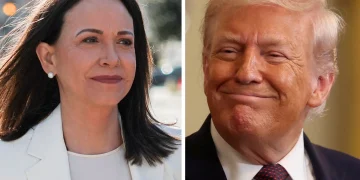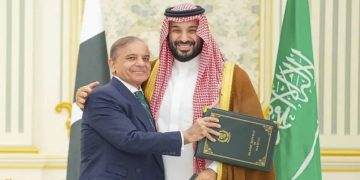New Delhi: Fifty-three political parties had contested the first Lok Sabha polls in 1951. The number of political parties today stands at over 2,500.
However, the national party count has gone down to six from 14 in over seven decades.
Contesting the general elections in May to elect the 18th Lok Sabha will be six national parties. The journey of political parties all these years has been an interesting ride from mergers to emergence of new players while some of them have ceased to exist.
A total of 53 political parties contested the first election, of which 14 were considered “national parties” while the rest were considered “state” parties.
According to the book “Leap of Faith”, published by the Election Commission of India to document journey of elections in India, prior to the 1953 polls as many as 29 political parties had demanded the status of a national party.
“A decision was made to grant the status to only 14 of them. However, the election results proved sobering for most of them and only four of them were permitted to retain the national status,” the book reads.
The four national parties by 1953 were the Congress, the Praja Socialist Party (formed following the merger of the Socialist Party and the Kisan Mazdoor Party), the CPI, and the Jana Sangh.
The parties which lost their national tag were Akhil Bharatiya Hindu Mahasabha (HMS), All India Bharatiya Jan Sangh (BJS), Revolutionary Socialist Party (RSP), All India Scheduled Castes’ Federation (SCF), All India Forward Bloc (Marxist group) (FBL-MG) and the All India Forward Bloc (Ruikar group) (FBL-RG), Krishikar Lok Party (KLP), Bolshevik Party of India (BPI), and Revolutionary Communist Party of India (RCPI).
The Socialist Party and Kisan Mazdoor Party had contested the first elections separately and they later merged to form the Praja Socialist Party.
The number of political parties reduced to 15 in the second elections in 1957 when the four national parties remained in fray. However, the next elections in 1962 saw 27 parties contesting and the number of national parties rose to six with the Socialist (SOC) and Swatantra (SWA) parties contesting the polls.
The Congress’s dominion persisted for a long time after the first general election, winning 11 of the 14 elections until 2014, when the tide turned in favour of the BJP.
The CPI formed the principal opposition in the next two Lok Sabha elections after the 1951 polls. However, in 1964, the Soviet and Chinese communist factions within the party split, giving rise to the CPI (Marxist). Thereafter, the new CPI(M) continued to secure more votes than the CPI in the country’s general elections.
“The Socialist Party had its roots in the Congress Socialist Party, a left-wing faction within the Indian National Congress formed by Jayaprakash Narayan, Ram Manohar Lohiya and Acharya Narendra Dev which separated from the former shortly after independence,” Pradeep Gupta, chairman of Axis India, told PTI.
“Despite Narayan’s popularity on account of his role in India’s freedom struggle, the Socialist Party’s election haul was unimpressive and thus, after the election, it merged with JB Kripalani’s Kisan Mazdoor Praja Party (KMPP) to form the Praja Socialist Party (PSP),” he added.
Gupta explained that at the time, Narayan, too, stepped back from the PSP and only re-entered national politics once again in the mid-70s when he led the movement against Indira Gandhi, whose government he alleged was corrupt and undemocratic. Narayan subsequently led the calls for Gandhi’s disqualification prior to her declaration of the Emergency in 1975, for which he was arrested.
Upon being released from jail, Narayan and other PSP leaders joined hands with several other groups to form the Bharatiya Lok Dal which, following the Emergency in 1977, along with practically the entire opposition in the country, banded together to form the Janata Party to oppose the Gandhi-led Congress. Several parties including the BJP and the Samajwadi Party can trace their lineage back to the Janata Party.
The least number of contesting parties till date were in 1992 Lok Sabha polls with seven national parties — BJP, Congress, CPI, CPM, Janata Dal, Janata Party and Lok Dal. According to ECI reports, the 1996 general elections saw a participation of 209 political parties including eight with the national tag — Congress (INC), All Indira Congress (Tiwari), BJP, CPI, CPM, Janata Dal, Janata Party and Samata Party.
In 1998 polls, the participating political parties were 176 including seven national parties — Congress, BJP, BSP, Janata Dal, CPI, CPM and Samata party,
In 1999, 160 political parties were in the poll fray including seven national parties — BJP, Congress, BSP, CPI, CPM, Janata Dal (Secular) and Janata Dal (United).
In 2014, 464 political parties participated in the contest out of which six were national. The parties were — BJP, Congress, CPI, CPI-M, NCP and BSP.
The All India Trinamool Congress (AITC), got elevated to the status of a national party in 2016, and contested the 2019 polls, with its newly acquired status.
In 2019 elections, seven national parties contested the polls — BJP, Congress, BSP, CPI, CPI (M), NCP and AITC. A total of 674 parties had contested.
However, both the Trinamool Congress (TMC), Nationalist Congress Party (NCP) and Communist Party of India (CPI), lost their national party status.
“As per the provisions, to become a national party, a political outfit needs to win at least two per cent of the total seats in the Lok Sabha from at least three different states or get at least six per cent votes in four states in addition to four Lok Sabha seats, or recognised as a state party in four states,” said former Chief Election Commissioner SY Quraishi.
Last year, the Election Commission (EC) recognised the Aam Aadmi Party (AAP) as a national party, giving it a major boost before 2024, while the TMC, NCP and CPI lost their national party status.
“The EC’s decision was based on a review of the parties’ poll performances — the 2014 and 2019 Lok Sabha polls and 21 state assembly polls since 2014. Besides other benefits, the status of a national party ensures that the party’s symbol is reserved for its candidates across the country, and it gets land for an office in the national capital,” he said.
The country now has six national parties – BJP, Congress, Bahujan Samaj Party, CPI(M), National People’s Party and AAP.
Polling for the 543 Lok Sabha seats will be held in seven phases, starting with 102 in the first phase April 19. The votes will be counted June 4.
PTI






































